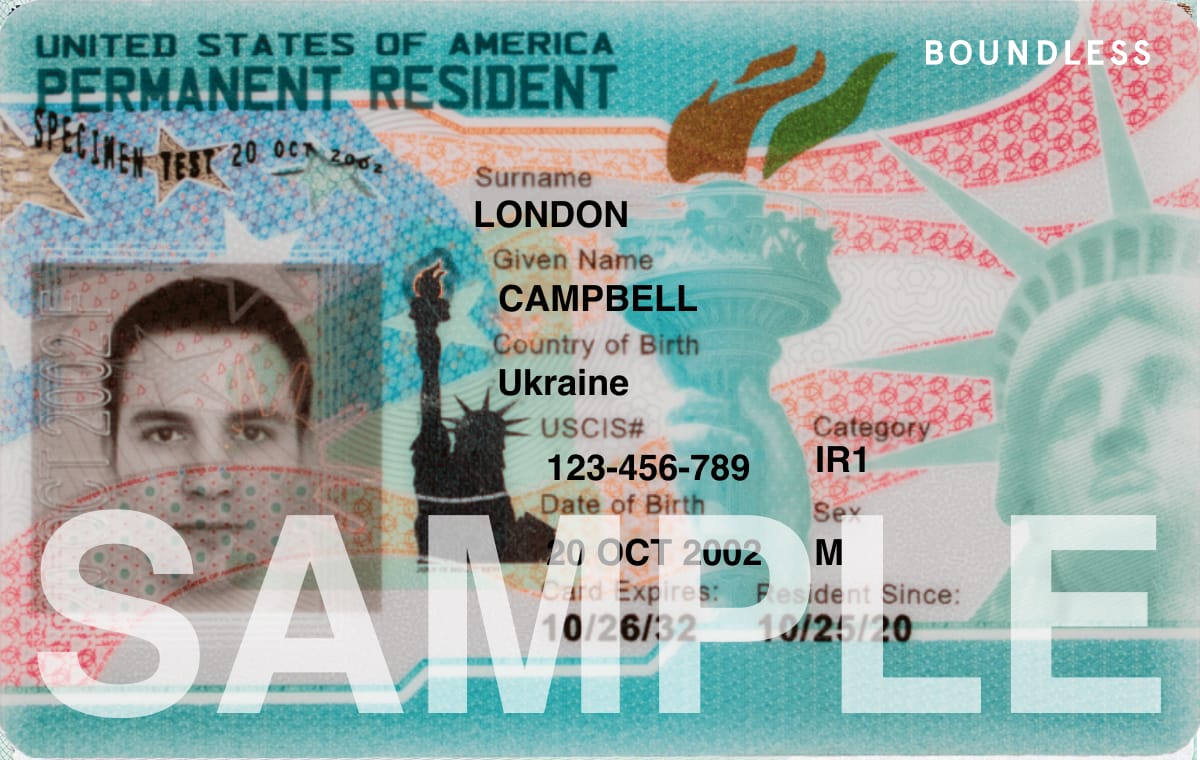
Green Card News in the USA: The Latest Updates and Trends
| What is a Green Card? | A Green Card, officially known as a Permanent Resident Card, is a document that provides proof of an individual’s legal status as a permanent resident in the United States. Holding a Green Card allows immigrants to live and work in the U.S. without any time limitations, and it serves as a pathway to U.S. citizenship. |
| Definition and Purpose | The primary purpose of the Green Card is to grant individuals the right to reside permanently in the U.S. While it does not confer full U.S. citizenship, it offers many of the same rights, including access to employment, the ability to sponsor family members, and eligibility for certain government benefits. |
| Types of Green Cards | There are several types of Green Cards based on the category of eligibility. Some of the most common types include: |
| – Family-Based Green Cards: Issued to individuals who have family members who are U.S. citizens or lawful permanent residents. |
| – Employment-Based Green Cards: Granted to foreign workers who have a job offer in the U.S. or possess specialized skills. |
| – Diversity Lottery Green Cards: Issued through a random lottery system to people from countries with low rates of immigration to the U.S. |
| – Refugee or Asylee Green Cards: Given to those who have been granted asylum or refugee status in the U.S. |
| Recent Changes in Green Card Policies | In recent years, U.S. immigration policy, including Green Card rules, has been a topic of significant debate. Several changes have been made to both the application process and eligibility requirements. |
| Updates in Immigration Laws | The Biden administration has sought to reverse some of the Trump-era immigration policies, which included limiting Green Card issuance and adding additional restrictions to certain immigrant categories. Under the Biden administration, efforts to streamline the Green Card process and increase annual quotas have been discussed, though not fully implemented yet. Additionally, proposals for providing more permanent resident status for undocumented immigrants, especially Dreamers (DACA recipients), have gained attention. |
| Green Card Lottery and Reforms | The Diversity Visa (DV) Lottery, or https://ndtopnews.com/ Lottery, remains a popular way for people from underrepresented countries to gain legal permanent residency in the U.S. However, the program faces periodic scrutiny. For example, there have been proposals to eliminate the lottery in favor of a more merit-based system, though it remains an integral part of U.S. immigration. In 2023, some reforms focused on improving accessibility and transparency in the lottery process. |
| How to Apply for a Green Card | Applying for a Green Card involves several steps, and eligibility varies depending on the category of application. Here’s an overview of the general application process: |
| Eligibility Requirements | To qualify for a Green Card, applicants must meet specific eligibility criteria. These can include family relationships, employment status, or refugee status. Some common requirements include: |
| – Proof of a valid relationship with a U.S. citizen or permanent resident (family-based). |
| – A confirmed job offer from a U.S. employer (employment-based). |
| – Demonstrating no criminal history or security concerns. |
| – Meeting health requirements, including vaccination records. |
| Step-by-Step Application Process | 1. Determine Eligibility: Identify the Green Card category that applies to you. |
| 2. File a Petition: A family member or employer typically files a petition on your behalf. In some cases, you can self-petition, as with the EB-1 visa for individuals with extraordinary abilities. |
| 3. Wait for Priority Date: Depending on the category, there may be a waiting period for a visa number to become available. |
| 4. Complete the Application: Once your priority date is current, submit your application (Form I-485) for permanent residency. |
| 5. Attend Biometrics Appointment and Interview: You’ll likely need to attend an interview and provide fingerprints for background checks. |
| 6. Approval: If everything goes smoothly, you’ll receive your Green Card, granting you lawful permanent residency. |
| Common Mistakes to Avoid | Many Green Card applicants make mistakes that can delay or derail the process. Common errors include: |
| – Missing deadlines or submitting incomplete forms. |
| – Failing to provide accurate documentation or translations. |
| – Not keeping track of your priority date, leading to unnecessary delays. |
| Green Card Processing Times and Delays | The processing time for a Green Card application can vary widely depending on the applicant’s category and country of origin. |
| Current Wait Times for Different Categories | Wait times for a Green Card can range from several months to several years. For example, family-based Green Cards may take 12-18 months, while employment-based Green Cards can take up to 5 years or more, especially for applicants from countries with high demand like India or China. |
| Reasons for Delays and How to Expedite Your Process | Delays are often caused by: |
| – High demand for certain visa categories. |
| – Administrative backlogs and staffing shortages at U.S. Citizenship and Immigration Services (USCIS). |
| – Incomplete applications or missing documentation. |
| Expediting the process can sometimes be done through premium processing, which speeds up certain employment-based visa petitions. |
| Challenges and Opportunities for Green Card Holders | Once a Green Card is granted, holders enjoy many privileges, but there are also responsibilities and challenges associated with it. |
| Rights and Responsibilities of Green Card Holders | Green Card holders have the right to live and work in the U.S., travel abroad, and sponsor relatives. However, they are also required to: |
| – Obey U.S. laws. |
| – File taxes as U.S. residents. |
| – Maintain their permanent resident status by not staying outside the U.S. for extended periods. |
| Green Card Renewals and Replacements | Green Cards are valid for 10 years, after which they must be renewed. If a Green Card holder loses their card, they can apply for a replacement through USCIS. |
| The Impact of Green Card Status on U.S. Society | Green Card holders contribute greatly to the U.S. economy and society, often bringing unique skills, entrepreneurial energy, and diverse cultural perspectives. |
| Economic Contributions of Green Card Holders | Green Card holders significantly contribute to the U.S. economy by filling essential jobs, creating businesses, and boosting innovation in industries like tech, healthcare, and education. Many successful U.S. entrepreneurs, like Sergey Brin (Google co-founder), are former Green Card holders. |
| Cultural Diversity and Social Integration | Green Card holders also enhance cultural diversity in the U.S., bringing unique traditions, languages, and perspectives. The ability to live permanently in the U.S. helps with social integration, as they become part of local communities and engage in American life. |
| Future of Green Cards and U.S. Immigration | As immigration policies evolve, the future of the Green Card system remains uncertain. However, several trends and changes could shape the future landscape of U.S. immigration. |
| Predictions for Immigration Reform | There are discussions about reforming the Green Card process to make it more efficient, equitable, and accessible, particularly in light of political debates on immigration. This could involve increasing the number of Green Cards issued annually or modifying the family-based immigration system. |
| Technology and the Green Card Process | Technology is playing a significant role in streamlining the Green Card application process, including online applications, digital biometrics, and better data management. This is expected to reduce wait times and improve user experience. |
| Conclusion | The U.S. Green Card continues to be a valuable and sought-after status for immigrants, offering the chance to build a new life in America. While the process remains complex and occasionally frustrating, changes and reforms may improve accessibility in the future. For those interested in pursuing a Green Card, understanding the application process, eligibility, and potential delays is key to navigating the system. |


